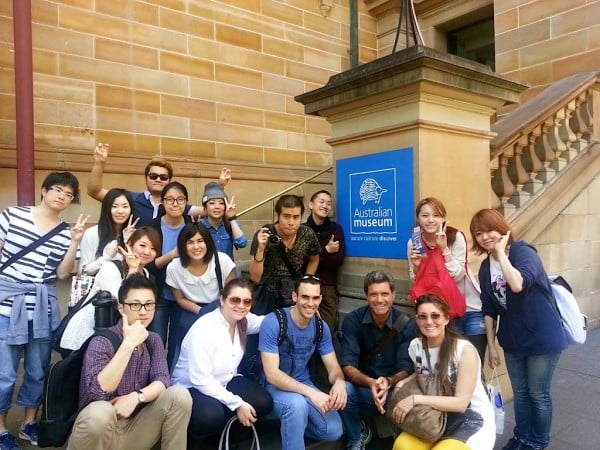.jpg?width=1903&height=644&name=IMG_4106%20(1).jpg)
Latest News

Understanding culture and cultural connectedness
What signifies a culture? How is one culture different to other cultures? What sets one culture apart from another? How can we achieve cultural connectedness and achieve harmony in a multicultural society? How can we build tolerance and understanding of each other’s culture?
First of all, what is “culture”?
What is culture?
Dictionary definition: the way of life, especially the general customs and beliefs, of a particular group of people at a particular time.
Hoebel describes culture as an integrated system of learned behaviour patterns which are characteristic of the members of a society and which are not a result of biological inheritance.
What is connectedness?
The state of being connected and having a close relationship with other things or people.
When I think of culture, there are various things that come to mind. These include: the religion, customs, manner, the economy, political views, weather, traditions, food, clothing, the music/dance/art, history and of course, the language.
We all learn language through context – you learn the most when you really need to be able to understand another person, such as in real life situations - on the street, on the bus/train, at the shops, at the airport and when booking a room at a hotel. You need to get out of our comfort zones, to put all our cultural, language and personal differences aside to reach out and communicate with someone else the best way you can.

What is culture shock?
Being in a new culture can bring culture shock. The dictionary definition of ‘culture shock’ is a feeling of confusion felt by someone visiting a country or place that they do not know.
You may have got culture shock when you came to Australia because it was very different from your own culture, for example, the food, customs, and weather, the pace of life, manners, religion and way of life. People often get homesickness at this time, until they learn to adapt to the new culture. Growing accustomed to these changes allows people to learn, open up their horizons and develop as a person.
Respecting culture
Australia is a multicultural country. The dictionary definition of “multicultural” is: including people who have many different customs and beliefs. There are more and more people coming to Australia to work, study and travel from around the world. In Sydney, we can see many types of restaurants, food markets, for example Chinatown, Thai town, and people from the same cultural group living in the same suburb or area. Because of this, it’s important to understand and respect each others’ culture.
I think it’s important for students studying English to respect and understand other peoples’ culture. The classroom may be the only place where students feel safe to be themselves, to ‘test’ out the language, to have fun and be in a supportive environment with people who are in a similar position to them, trying to understand others and be understood. They feel connected because they are in the same situation, with the same goal of improving their English. Native speakers may not be as patient with them, or may not tolerate their lack of knowledge, slow responses or accent. In my pronunciation classes, students have to give a presentation about their country, which is interesting for everyone to learn about and helps everyone to feel connected to each other.
Learn more about living in Australia >
 Chinese
Chinese Japanese
Japanese Italian
Italian Korean
Korean Spanish
Spanish Portuguese
Portuguese Thai
Thai Vietnamese
Vietnamese









